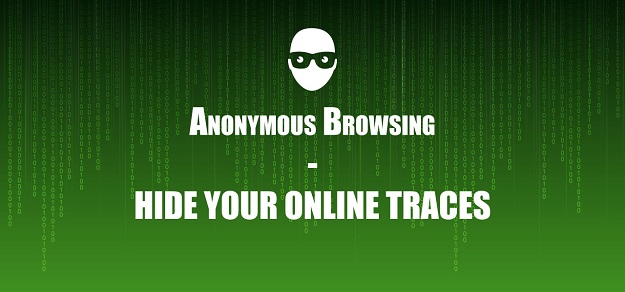Most portion of present generation spends some time every day to surf for different needs. But whenever your complete your surfing you love to keep the process clean without leaving any of the traces. You love to surf anonymously and to quit the server as a stranger without keeping any important personal information there.
Online privacy is the important factor or reason that makes everyone to look for the ways to surf anonymously without leaving any of the traces. You never like any of the internet service provider or any other agencies to misuse your data.
Here are some of the important tips to surf the web anonymously without leaving traces.
1. Use of private browser
If you use a public computer or share the computer, then it is better to turn on private mode, or you can use the TOR browser. This helps in preventing the browsing history to get stored in the computer. This action prevents the popping of the sites you visited at a later time. This also blocks the third party cookies that can track your movement between different sites and deletes first-party cookies in the end of sessions to stop someone knows that you visited the website before them. It is so easy to select the private mode from the toolbar of the browser.
2. Kill or delete cookies
Deleting, preventing or killing the third party cookies can stop some types of tracking. Super cookies or flash cookies can store the information left by the website with flash. These cookies can track the movement across several browsers and also have the ability to regenerate the previously deleted third-party cookies. Hence it is good to delete all the cookies to surf without leaving any of the traces. It is a better idea to download a free CCleaner for the purpose.
3. Prevent sending location data
Almost all of the browsers have a feature to send the geographical location of the user to the website they visit. This is done with the intention to provide useful and relevant experience. But the location details can be used by the sites or advertisers to provide you with the same information without asking for. You never like to identify your location and related information by any others. Hence it is better to deny the location request from unwanted or irrelevant websites. Most of the browsers will ask for the location when the website want it for the first time. You can also make changes in the settings of the browsers to prevent any of the sites from tracking your physical location.
4. Stop Google tracking
There is no doubt that Google is an excellent searching engine with its varied services including Gmail, You Tube, Calendar, Google+ and more. With a single account, you can enjoy several services of Google. The privacy policy of Google includes tracking you across all of its services including Gmail scanning.
The information is used to assure personalized experience. The problem is that targeted ads will be generated based on the email content. Most of the surfers hate this process and they never love to leave any of the traces. You can turn off ad personalization and can download Google Analytics Browser Add-on to prevent Google Analytics from using the data from your movement to help its ad partners.
5. Use of Proxy Server
Surf anonymously means you never like to disclose your personal identity or IP address. The best way to assure maximum privacy for your personal information and of your computer is to make use of the anonymous proxy server.
Yes, Proxy server acts between you and your online visits. When you use this server, the browser directs the proxy server to contact the websites instead of contacting the website directly. Hence your personal information is protected to maximum and you can surf as an anonymous user.
6. Prevent social website from figuring you out
There is no doubt that social websites can collect huge information of the user based on the likes made, clicks made, interest expressed etc. Social websites like Twitter, Facebook, and LinkedIn can track the users even after they have logged out of the accounts. There is no need to share some contents. Your visit to the webpage with social media button is enough to send your information back to the mothership to help the advertisers in showing the ad to the persons who visited the website. You can manage this ad preference in the setting of your browsers. Never allow your social website to collect your information and to supply the same for advertisers.
7. Disable Java and unused plugins
Plug-ins are easily downloadable and are done to enhance the browser capabilities, to say playing certain animations or videos. But unfortunately, two of the most used plug-ins including Java and Adobe Flash are blamed widely to expose the details of the browser. Hence it is certainly a good idea to disable the unused plug-ins frequently.
Summary
Your online privacy is so important and you can use the Proxy server, VPN service or Tor browserand takes every possible step to make a clean surfing without leaving traces.

